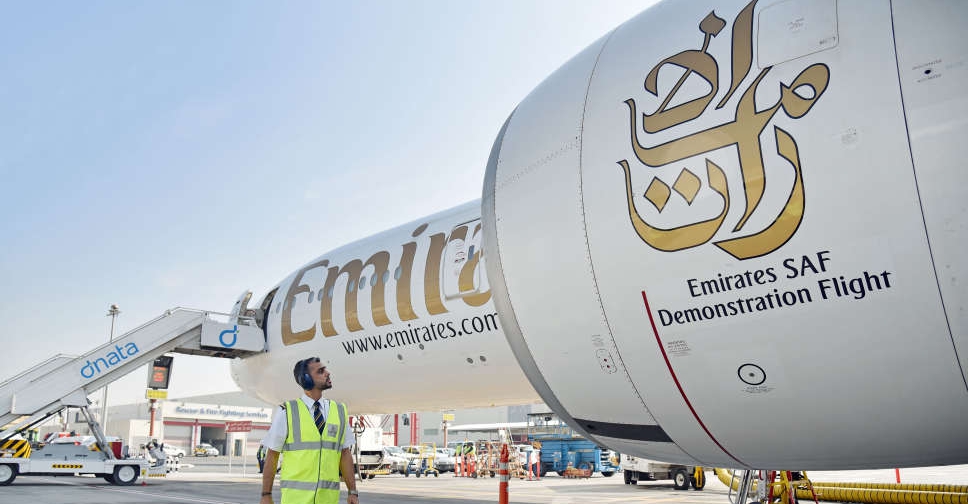
Emirates has operated its first test flight on a Boeing 777-300ER, powering one of its engines with 100% Sustainable Aviation Fuel (SAF).
It took off from Dubai International Airport and was commanded by Captain Fali Vajifdar and Captain Khalid Nasser Akram, flying for more than one hour over the Dubai coastline.
Speaking to Dubai Eye 103.8's Business Breakfast, Zeina Chakhtoura, Senior Customer Service Manager for GE Aviation, explains how sustainable fuel is different from conventional fuel.
Emirates worked alongside partners GE Aerospace, Boeing, Honeywell, Neste and Virent to procure and develop a blend of SAF that closely replicates the properties of conventional jet fuel.
Eighteen tonnes of SAF were blended, comprised of HEFA-SPK provided by Neste (hydro processed esters and fatty acids and synthetic paraffinic kerosene) and HDO-SAK from Virent (hydro deoxygenated synthetic aromatic kerosene). The 100% SAF supplied one GE90 engine, with conventional jet fuel supplying the other engine.
She explained that while supply is currently low, more awareness in jet fuel alternatives can help drive demand in the aviation industry.
The flight, the first in the Middle East and North Africa, supports broader efforts to reduce lifecycle CO2 emissions as the industry looks to scale up its use of SAF.
Currently, SAF is approved for use in all aircraft, but only in blends of up to 50 per cent with conventional jet fuel.
It also supports collective industry efforts to help advance the UAE’s sustainability objectives.
Adel Al Redha, Chief Operating Officer, Emirates Airline, spoke to Dubai Eye 103.8's Business Breakfast about what needs to be done to make the use of SAF more common.
The airline already runs a comprehensive fuel efficiency programme that actively investigates and implements ways to reduce unnecessary fuel burn and emissions, wherever it is operationally feasible. Some of the programme’s most significant initiatives include the operation of “flex tracks”, or flexible routings - partnering with air navigation service providers to create the most efficient flight plan for each flight.
These efforts have been ongoing since 2003, and Emirates has been working with IATA to extend this routing system across the world as a standard operating procedure where possible.
Emirates’ first flight powered by SAF blended with jet fuel was in 2017, operating from Chicago O’Hare airport on a Boeing 777.
It received its first SAF-powered A380 delivery in 2020, and also uplifted 32 tonnes of SAF for its flights from Stockholm that same year.


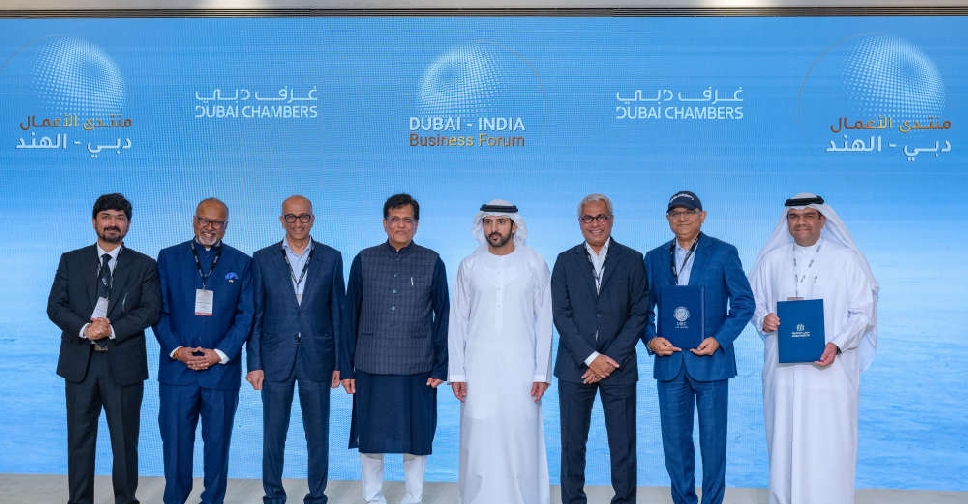 Dubai to host new IIM campus and UAE-India Friendship Hospital
Dubai to host new IIM campus and UAE-India Friendship Hospital
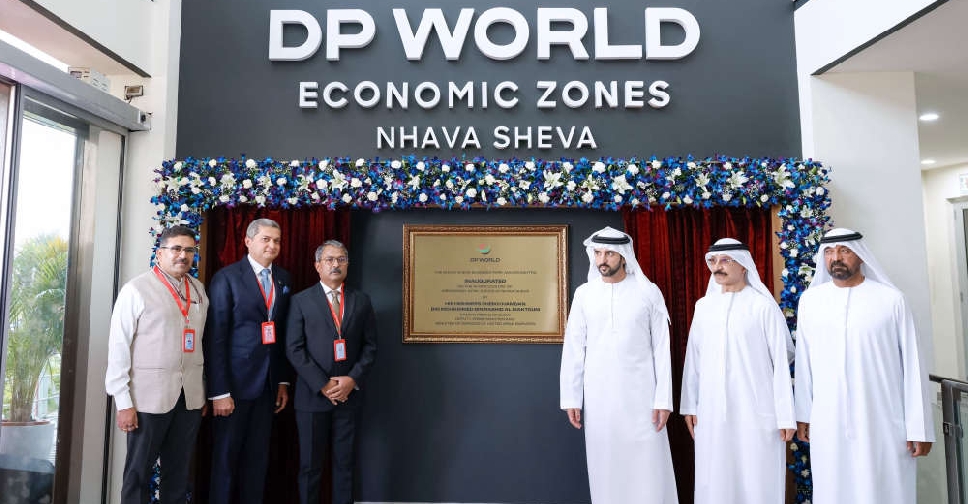 H.H. Sheikh Hamdan unveils DP World's Free Trade Warehousing Zone
H.H. Sheikh Hamdan unveils DP World's Free Trade Warehousing Zone
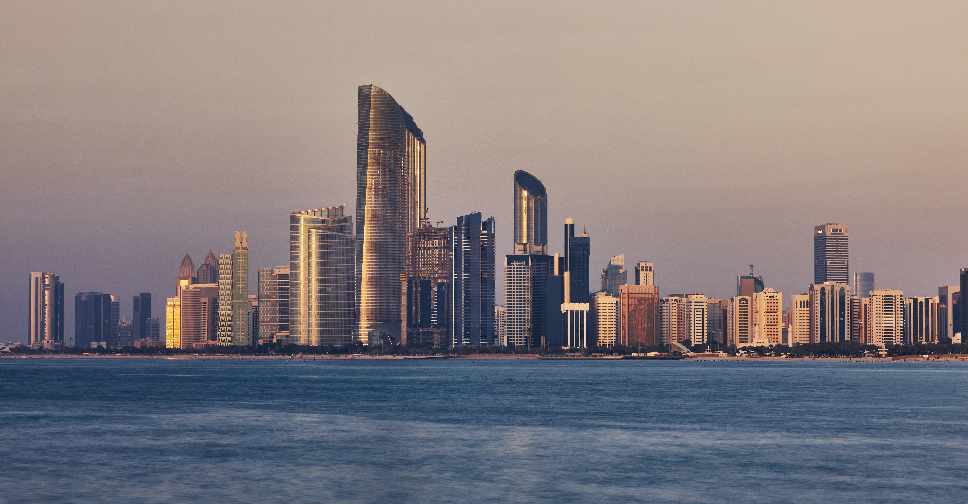 UAE partners with Google for Global Cyber Security Centre of Excellence
UAE partners with Google for Global Cyber Security Centre of Excellence
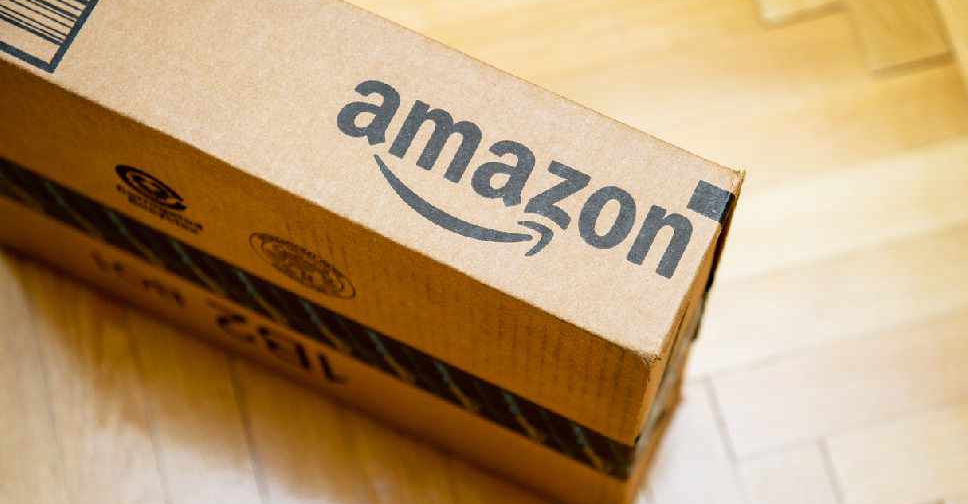 Chinese sellers on Amazon to hike prices or exit US as tariffs soar
Chinese sellers on Amazon to hike prices or exit US as tariffs soar



